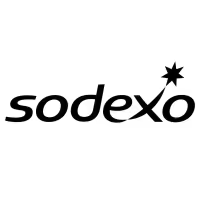It’s a wrap: 2022 is done and dusted. For some businesses, it’s been a rollercoaster of economic uncertainty, surprise interest rate rises, stubborn skill shortages and ballooning inflation, caused by a culmination of global factors: economic growth, easy monetary policy, continued supply chain disruption and the invasion of Ukraine.
If there’s one take-home message, it’s about fortifying your financial management to buffer the headwinds. Good financial management helps ensure you’re using resources effectively, remaining competitive, and preparing for long-term financial stability.
The end of a year and the start of another is a timely opportunity to reconsider how you’re managing your business finances. This is your guide to three financial habits to leave behind in 2022, and three more to embrace for the new year.
Bad habit 1: Mixing personal and business finances
Not separating your business from personal finances creates hurdles for calculating your income tax, and further complications if the Australian Tax Office (ATO) decides to audit your finances.
When you use business funds or assets for personal purposes, but don’t repay or account for them correctly, they could be treated as your assessable income, says the ATO.
Bad habit 2: Overspending on non-essentials
Review your business expenditure for 2022 to see if you’re overspending on any of these ‘non-essentials’ for growth:
• Catered lunches, special amenities or perks for staff• Workplace initiatives or programs, including those that are outsourced and don’t explicitly support your business development strategy• Freebies for clients• New staff uniforms every year• Nice-to-have digital subscriptions.
Bad habit 3: DIY-ing your financial management
If you don’t have an accountant or bookkeeper, you could be missing out on efficiencies and solving some of these issues.
For example, an accountant will understand tax laws and guide you on:
• Setting up and maintaining your financial records• Preparing financial statements• Gaining insights into maximising profit and cash flow, while reducing debt• Increasing tax deductions to lower your tax bill, and• Creating and implementing a business strategy.
Good habit 1: Follow an every-dollar budget
Tracking the exact spending of your business – rather than rounding off your figures – is a good move. But there’s more to this tip. Aim to set up a quarterly or monthly ‘every-dollar budget’ before ensuring you follow and execute your budget as precisely as possible.
This will help you:
• Develop skills in predicting your spending and income• Have access to precise numbers when it comes to unforeseen savings and spending• Build more freedom into your budget to better inform your decision-making.
Good habit 2: Reduce unnecessary debt
Review finances regularly to identify and manage debt. Prioritise repayments and note them in your budgeting plan.
About three-quarters of outstanding SME loans have variable interest rates, which are rising, according to the Reserve Bank of Australia.
SMB owners are three times more likely than large enterprises to opt for debt, not equity, finance to keep control of their business, the
Productivity Commission has found. About half of SMBs that sought debt finance did so to maintain short-term cash flow.
Good habit 3: Work with your broker
A healthy cash flow is essential for businesses to survive and succeed, both in the current climate and long term. Having the support of a broker means you will have access to solutions that will not only alleviate financial stress but also help your business continue to grow. Our expertise and existing relationships with various lenders give you a broader understanding of the offerings available. We consider all finance options and negotiate on your behalf to find the best value for your circumstances.
Let us save you time and money by investigating and advising on the most suitable finance solutions for your goals. We can help you embrace new finance strategies to make 2023 a successful year for your business.














